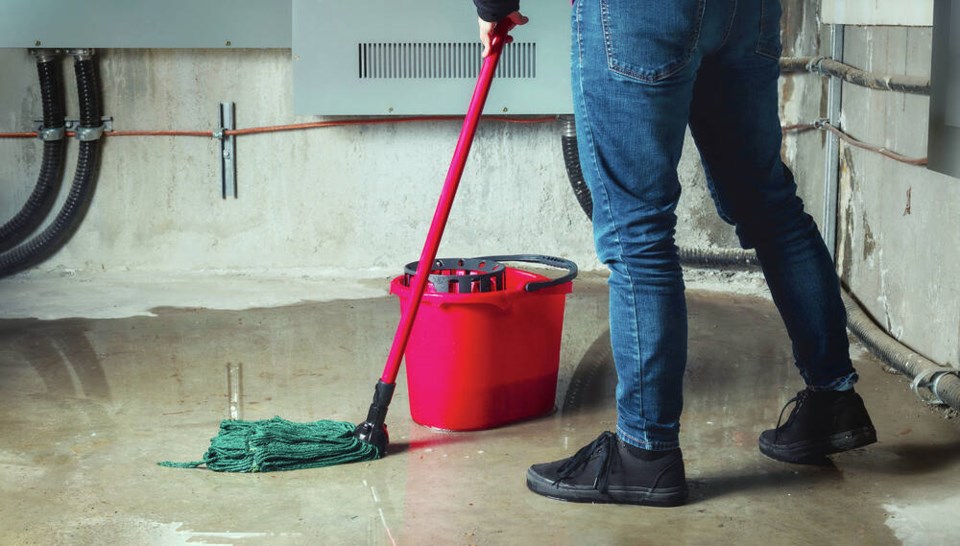Business
Prepare Your Home: Tips to Prevent Major Flooding Issues

Severe flooding can wreak havoc on homes and properties, causing extensive damage and significant financial loss. According to property management expert David Sovka, homeowners can take proactive measures to mitigate the risk of such disasters. The key, he suggests, is to understand and locate your property’s water shutoffs.
Understanding the mechanics of your home’s plumbing is crucial. Property owners should identify where the main water shutoff valve is located, as well as any additional shutoff valves throughout the property. These valves allow residents to quickly stop water flow in the event of a burst pipe or other plumbing emergencies. Knowing how to access and operate these shutoffs can prevent a minor leak from escalating into a major flood.
In many cases, flooding is caused by human error. Sovka emphasizes that homeowners must remain vigilant and proactive. Regular maintenance checks on plumbing systems can detect potential problems before they become severe. Simple tasks, such as inspecting hoses, checking for leaks, and ensuring drains are clear, can go a long way in preventing water damage.
Emergency Preparedness and Response
In addition to regular maintenance, having an emergency plan is essential. Homeowners should create a checklist of actions to take when flooding is imminent. This could include moving valuables to higher ground, securing important documents, and ensuring that the family knows how to shut off the water supply. Creating a plan can significantly reduce panic during a crisis.
Local authorities and emergency services often provide resources to assist homeowners in flood-prone areas. For instance, many municipalities offer sandbags to help divert water away from properties. Engaging with local government initiatives can provide valuable support and information about flood prevention measures specific to your area.
Moreover, property owners should consider the financial aspect of potential flooding. Insurance companies often require policyholders to take reasonable steps to prevent water damage. Not only can preventative measures help reduce the likelihood of flooding, but they may also lead to lower insurance premiums. Homeowners should consult their insurance policies and speak with their agents to understand what is covered in the event of a flood.
Investing in Flood Prevention
Investing in flood prevention technology can provide an additional layer of security. Devices such as water leak sensors and automatic shutoff valves can alert homeowners to leaks and shut off water supplies before significant damage occurs. These smart home technologies are becoming increasingly affordable and can be valuable tools in safeguarding properties from water-related issues.
Furthermore, understanding the geography and environmental factors affecting your home is essential. Properties located near rivers, lakes, or coastal areas are at a higher risk for flooding. Homeowners should research historical flooding data and consider consulting with local experts on the best practices for flood mitigation specific to their location.
By taking these proactive steps and remaining informed, homeowners can significantly reduce the risk of catastrophic flooding. David Sovka encourages everyone to act now, rather than waiting for a disaster to strike. The time invested in flood prevention can save thousands of dollars in potential damages and provide peace of mind for families.
-

 Education4 months ago
Education4 months agoBrandon University’s Failed $5 Million Project Sparks Oversight Review
-

 Science5 months ago
Science5 months agoMicrosoft Confirms U.S. Law Overrules Canadian Data Sovereignty
-

 Lifestyle5 months ago
Lifestyle5 months agoWinnipeg Celebrates Culinary Creativity During Le Burger Week 2025
-

 Health5 months ago
Health5 months agoMontreal’s Groupe Marcelle Leads Canadian Cosmetic Industry Growth
-

 Science5 months ago
Science5 months agoTech Innovator Amandipp Singh Transforms Hiring for Disabled
-

 Technology5 months ago
Technology5 months agoDragon Ball: Sparking! Zero Launching on Switch and Switch 2 This November
-

 Education5 months ago
Education5 months agoNew SĆIȺNEW̱ SṮEȽIṮḴEȽ Elementary Opens in Langford for 2025/2026 Year
-

 Education5 months ago
Education5 months agoRed River College Launches New Programs to Address Industry Needs
-

 Business4 months ago
Business4 months agoRocket Lab Reports Strong Q2 2025 Revenue Growth and Future Plans
-

 Technology5 months ago
Technology5 months agoGoogle Pixel 10 Pro Fold Specs Unveiled Ahead of Launch
-

 Top Stories1 month ago
Top Stories1 month agoCanadiens Eye Elias Pettersson: What It Would Cost to Acquire Him
-

 Technology3 months ago
Technology3 months agoDiscord Faces Serious Security Breach Affecting Millions
-

 Education5 months ago
Education5 months agoAlberta Teachers’ Strike: Potential Impacts on Students and Families
-

 Business1 month ago
Business1 month agoEngineAI Unveils T800 Humanoid Robot, Setting New Industry Standards
-

 Business5 months ago
Business5 months agoBNA Brewing to Open New Bowling Alley in Downtown Penticton
-

 Science5 months ago
Science5 months agoChina’s Wukong Spacesuit Sets New Standard for AI in Space
-

 Lifestyle3 months ago
Lifestyle3 months agoCanadian Author Secures Funding to Write Book Without Financial Strain
-

 Business5 months ago
Business5 months agoNew Estimates Reveal ChatGPT-5 Energy Use Could Soar
-

 Business3 months ago
Business3 months agoHydro-Québec Espionage Trial Exposes Internal Oversight Failures
-

 Business5 months ago
Business5 months agoDawson City Residents Rally Around Buy Canadian Movement
-

 Technology5 months ago
Technology5 months agoFuture Entertainment Launches DDoD with Gameplay Trailer Showcase
-

 Top Stories4 months ago
Top Stories4 months agoBlue Jays Shift José Berríos to Bullpen Ahead of Playoffs
-

 Top Stories3 months ago
Top Stories3 months agoPatrik Laine Struggles to Make Impact for Canadiens Early Season
-

 Technology5 months ago
Technology5 months agoWorld of Warcraft Players Buzz Over 19-Quest Bee Challenge










